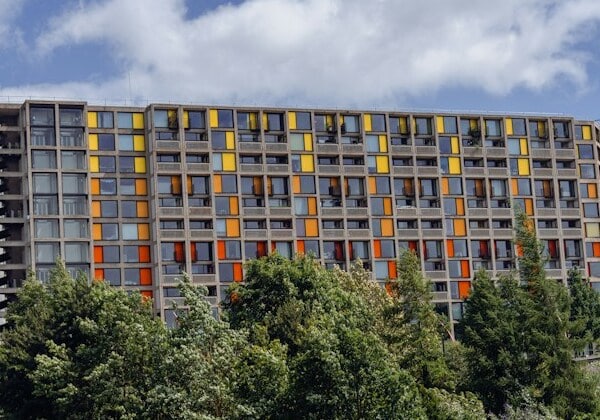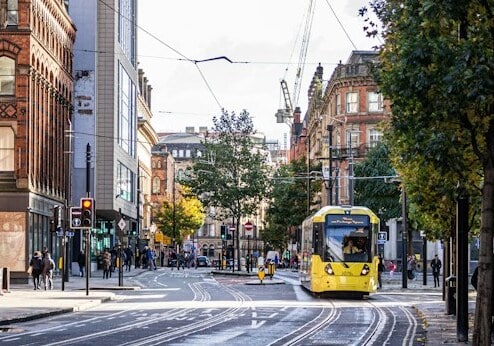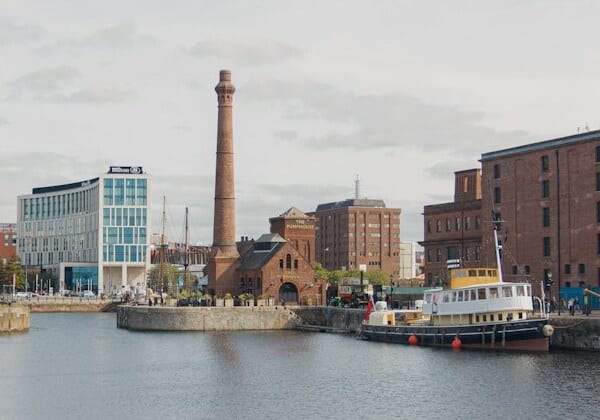The UK attracts expats from across the globe with its renowned educational institutions, a historic arts and culture scene, and a thriving economy. Understanding the UK real estate market regulations is crucial for those considering buying property in the UK and settling there long-term.
This article will explore everything you need to know about the UK property market, finding the right property, UK property purchase for foreigners, and other details related to the property purchase process, such as stamp duty land tax.
Buying a House in the UK as a Foreigner
The United Kingdom is one of the best places to buy property in Europe, and foreign nationals can legally buy UK properties without authorization or restrictions. There are no specific legal requirements for Americans and other foreigners buying property. However, specific tax implications and UK property regulations apply to non-residents purchasing property in the UK.
While foreigners are free to buy UK houses, certain aspects of property buying may be more challenging than for residents, such as obtaining a mortgage from UK mortgage lenders or a requirement to put down a larger deposit.
Eight Types of Homes in the UK to Purchase
When you start house hunting, it’s essential to familiarise yourself with the options available to you during your property search so you can make a sound decision on the investment property or residential property that will best suit your needs. Local estate agents can guide you through important details about property in the UK, such as the average house price and the best cities to purchase property, and even connect you to a mortgage lender or mortgage broker to assist with the property buying process.
Detached houses
Detached houses are standalone properties that do not share walls with neighboring properties, perfect if you seek exclusive homeownership of a building. These houses feature separate gardens in the front and back of the property and are ideal for families with children.
The vibrant cities of Newcastle, Leeds, Liverpool, Hull, and Manchester in the Northern area of the United Kingdom offer stunning detached houses that blend traditional charm with modern aesthetics. Detached houses are designed for serene, spacious living and make the perfect investment property for you to attract tenants who want residential privacy.
Semi-detached houses
A semi-detached house in the UK is similar to an end-of-terrace property as it shares a single side wall with a neighboring residence. Designed to optimize space, these homes are generally available at more affordable property prices than fully detached homes. You will discover exceptionally charming semi-detached houses from the Victorian and Georgian eras in cities like London and Winchester.
Terraced houses
Renowned for efficiently utilizing space and as iconic symbols of UK dwelling styles, terraced houses are quaint continuous rows of homes joined by a single wall on each side. Terraced houses often come at affordable asking prices as they generally do not feature large front or rear gardens.
However, they are still a comfortable and practical choice for foreign investors and home buyers. These homes are also referred to as townhouses in the United States. If you are searching for a unique property in the UK, consider an end-of-terrace home, as they offer unique floor plans and the advantage of having just one neighboring side.
Cities like London, Bath, Manchester, Leeds, Newcastle, and Brighton are home to beautiful, terraced houses, showcasing a blend of practicality and charm within the urban landscape.
Flats

Flats are typically organized within a single building and are an excellent space-saving design for well-populated cities. Most modern flats come in purpose-built properties; however, many large Edwardian houses and derelict cotton mills have been converted to flats, adding a unique charm and character absent in new-build properties.
Whether you are an investor seeking to purchase for rental income, an individual relocating to the UK on a student or work visa, or a small family seeking affordability, flats are a great alternative to detached or semi-detached houses.
You will find stunning flats for purchase in vibrant UK cities like Birmingham, Nottingham, Glasgow, London, Bristol, Edinburgh, Leicester, Cambridge, and Cardiff.
Cottages
The epitome of tradition and primarily found in the rural regions of the United Kingdom, cottages feature the best of this nation’s enduring designs that span centuries. Traditionally considered holiday homes or seasonal rentals, cottages feature sturdy construction, thick walls, and timeless charm. These homes usually have one or two stories and lush, spacious gardens.
A cottage will be the perfect property purchase for you if you are seeking to invest in a cozy retreat as a holiday home. You should explore picturesque areas like Devon, Northumberland, Yorkshire, Snowdonia, Dorset, Copeland, Somerset, St Ives, and The Cotswolds, where you will find numerous cottages promising comfort and rural allure.
Bungalows
A single-story house in the UK is called a bungalow, offering a unique and sought-after housing option. These UK homes hold significant appeal to retirees and senior citizens in the UK due to their convenience and accessibility. The absence of stairs provides ideal housing for individuals with mobility challenges or those seeking a more easily navigable living space.
With their arrival in the mid-19th century, bungalows often featured a bohemian-style open layout with rooms spread across a single floor. Various architectural styles are available today, from traditional to modern, and the properties are situated in diverse settings, including suburban neighborhoods and the UK countryside.
Barges
Barges – also known as canal boats – represent a distinctive and unconventional form of residential living in the UK. These unique floating homes were originally used as working barges to transport goods with the development of the UK canal system in the 1800s. The increasing popularity of road and rail transportation in the 20th century saw a significant decline in barge transportation. A surge in interest during the 1970s sparked efforts to revitalize the British waterway system, leading to the conversion of numerous barges for alternative purposes, including residential use.
Today, you can see numerous barge homes nestled along the UK’s scenic waterways of rivers and canals. Characterized by their compact yet cleverly designed interiors, these floating homes maximize space efficiency. Residents of barge homes enjoy a close-knit community along the water, with the flexibility to cruise along the interconnected water networks or moor in designated residential marinas.
The charm of barge homes lies in their ability to merge maritime remnants of the Industrial Revolution with contemporary living, offering an idyllic and unique residential experience in the heart of the UK’s canal system.
Manors
Ranking the highest in property cost, mansions, also referred to as historic houses, are symbols of luxury and opulent living within the UK. With some manors tracing their land registry origins and property’s legal deeds back centuries, these properties boast impressive sizes and rich historical narratives. Often designated as protected historical sites, these residences face limitations on alterations or expansions due to their heritage status.
A manor is perfect for the individual buying UK property in search of a grand residence. For authentic luxury homes, look in the cities of London, Oxford, and Cambridge. These cities are home to exclusive, historic properties, inviting affluent buyers into a world of lavish living steeped in heritage and sophistication.
Why buy property in the UK?
- Stable UK property market: The UK property market is stable and established, especially in key cities like London, Manchester, and Edinburgh. Most investors view investing in the UK property market as a safe long-term investment due to proven property value appreciation.
- Educational opportunities: Many foreigners invest in UK property due to its world-renowned educational institutions. Purchasing property allows for accommodation options for family members studying in the UK, potentially saving money on rental costs.
- Diversification of investment portfolio: Investing in UK property offers diversification to a global investment portfolio. With the potential for rental income and capital gains, UK commercial and residential property is seen as a relatively secure investment avenue.
- Favorable legal system: The UK’s legal framework for property ownership is transparent and investor friendly. Clear property rights and a well-established legal system provide a sense of security for foreign investors. Foreign property buyers do not face additional legal restrictions.
- Pathway to residency and citizenship: Property ownership can assist in the journey to residency or citizenship in the UK. However, it is essential to note that purchasing property itself does not guarantee residency, and you will need to apply for certain visas and programs to facilitate the process of residency and citizenship.
Where to buy property in the UK?
Manchester

Boasting some of the highest capital appreciation returns over the past five years, Manchester has consistently ranked in the top three locations for price growth in the North, experiencing a significant surge between 2017 and 2018. Manchester ranked in the UK’s top three cities for house price growth in 2023, according to Statista.
London

As such, property values in London have generally seen long-term appreciation despite periodic fluctuations. While the city has the highest cost of living in the UK and property values may be considerably higher than in other parts of the country, the potential for significant returns on investment, coupled with the city’s status as a global economic and cultural hub, continues to attract both domestic and international investors.
Sunderland

While it may not hold London’s tourist attractions and financial might or Manchester’s rapidly expanding urban scene, this figure emphasizes the city’s attractiveness for foreign property investors, solidifying its position as a lucrative destination for those seeking substantial returns on their real estate investments.
Liverpool

The city’s strong rental market, driven by a thriving student population and a growing economy, is proven by its place among the top ten UK cities for average gross rental yield in 2023, as reported by Zoopla. Additionally, Liverpool has outpaced both London and Manchester regarding average house price increase over the past five years.
Finding the best property in the UK
The best way to start your journey towards finding a suitable property to purchase in the UK is meticulous research. Begin with comprehensive online research, define your needs, set a budget, and select your ideal locations.
It is helpful to also create a checklist of the essential amenities you need near your house in the UK. Think about the locations of workspaces, schools, and hospitals nearby, transportation and accessibility, and the type of community you will thrive being a part of.
Several handy websites facilitate property searches in the UK, such as Rightmove, Zoopla, Net House Prices, Prime Location, and Buy Properly. You can engage with real estate agents to make the purchasing process even easier.
Connecting with a real estate agent offers insights into property prices and local processes, broadens your property options, and can connect you to a reputable UK mortgage provider. Additionally, involving a UK property agent eases negotiations with the seller’s solicitor and tasks related to the legal work, such as preparing to exchange contracts, making it easier for you to get to the purchase completion date.
Financing a UK Property Purchase
If you’re not a cash buyer and seek financing to buy a property in the UK, exploring UK mortgage options is a crucial step to completing a successful purchase. Many financial institutions, including banks and mortgage providers, offer a variety of UK mortgages tailored to foreign buyers.
Most UK mortgage lenders offer a variety of fixed-rate and variable-rate mortgages at various interest rates, depending on your credit history. You are typically expected to pay a 5 to 40 percent deposit, with higher percentages often required for non-residents.
Many mortgage providers have a maximum loan-to-value (LTV) of 75 to 60 percent for non-residents and foreigners. This means a buyer seeking a mortgage must pay a deposit of 25 percent of the property’s purchase price if the maximum loan-to-value (LTV) is 75 percent and 40 percent of the property’s price if the maximum loan-to-value (LTV) is 60 percent.
UK mortgage advisers may be able to assist with getting a mortgage in the UK by using overseas assets as collateral, but tax considerations, legal intricacies, and the overall mortgage costs must be carefully evaluated.
The typical criteria to get a mortgage as a non-UK resident or foreign national living in the UK under 12 months from an established UK mortgage provider like HSBC includes the following:
You’re a resident of one of these countries:
- Australia
- Guernsey
- Hong Kong
- Isle of Man
- Singapore
- Switzerland
- United Arab Emirates
- United States of America
- You speak fluent English
- You earn an annual salary of at least £75,000 or AED 1 million (£215,000) if you’re a UAE national
- Your loan-to-value (LTV) ratio is a maximum of 75 percent
Steps for Buying a Home in the UK
Buying a property in the UK as a foreigner involves several steps:
- Financial preparation: Calculate moving costs, review mortgage options, if required, and explore available loans suited for overseas buyers.
- Property search: Identify the type of property you want to purchase and start searching for the right one. This can be done through popular real estate websites like Rightmove and Zoopla or through local real estate agents.
- Viewing and offer: Visit potential properties, make offers with the assistance of an estate agent, and negotiate with sellers to reach an agreement.
- Legal assistance: Find a solicitor specialized in conveyancing to oversee the legal aspects and bring the sale process to an agreement.
- Property assessment: Conduct a house survey with the assistance of a licensed chartered building surveyor to examine the property’s condition and document its characteristics thoroughly.
- Mortgage finalization: If required, complete the mortgage process with the lender to secure the necessary financing.
- Insurance arrangement: Arrange relevant insurance, such as buildings insurance for the property.
- Contract signing: Sign and exchange contracts with the seller, ensuring all legalities and terms are met.
- Register your ownership: Once you’ve acquired the property, you must pay the required fee to HM Land Registry to confirm the new ownership with the UK government.
- Moving finalization: Finalize the moving process, ensuring all necessary arrangements are in place for a smooth transition.
Obtaining an entry visa is essential for foreigners purchasing a house in the UK with intentions to reside or visit. Buying property in a foreign country can be daunting, but the process becomes more manageable with the assistance of a real estate agent, specialist mortgage broker, and solicitor.
When considering purchasing property in the UK as an American, understanding the requirements, such as necessary documentation and visa implications, is crucial. Affordable housing options can be found across various regions, and exploring different areas can lead to discovering the most affordable and suitable alternatives.
Throughout the purchasing process, staying informed about current property investment trends, the real estate market, and available land for sale in England can provide valuable insights for making a well-informed decision.
The Typical Cost of Buying a House in the UK as a Foreigner
Before beginning the home-buying process and starting your mortgage application, it is vital to ensure that you have the finances to cover all upfront costs that are additional to your monthly mortgage payments and the house’s asking price. These additional costs include everything from legal and land registry fees to mortgage valuation and chartered surveyors.
Here is a list of costs involved to consider:
Stamp duty costs
Stamp Duty Land Tax (SDLT) is a tax levy placed on the purchase of property in England and Northern Ireland. The stamp duty you will pay is dependent on the purchase price and, and the following rates currently apply until until 31 March 2025.
Purchase Price | Percentage |
Up to £250,000 | 0 |
£250,001 to £925,000 | 5 |
£925,001 to £1.5 million | 10 |
Above £1.5 million | 12 |

Wales: Land Transaction Tax (LLT) is the Welsh version of stamp duty with some slight differences. The rates are progressive from zero to 12 percent, and second-home buyers are liable to pay an additional four percent, while first-time buyers have a tax-free threshold of £180,000.
Scotland: Stamp duty in Scotland is called Land and Buildings Transaction Tax (LBTT). Like LLT and SDLT, it has progressive rates from zero to 12 percent, and second-home buyers are liable to pay an additional four percent. First-time buyers have a slightly lower tax-free threshold than LLT of £175,000.
House deposit
Foreign buyers must generally pay a deposit of 25 to 40 percent as per the mortgage offer terms of popular mortgage providers in the UK. Buyers can determine the required deposit through the provider’s maximum loan-to-value (LTV) ratio.
Property valuation
UK property valuation fees cost between £150 to £1,500. Lenders use the valuation report to assess the property’s current market value, ensuring that the loan amount aligns with the property’s worth. This assessment helps lenders to determine accurate loan agreements.
Building surveyance
The fee to conduct a property survey in the UK ranges from £150 to £1,000 or more. The cost will depend on the property’s size, age, previous history, and whether it will be a detailed survey or a basic property assessment. The fees also vary among experienced chartered surveyors.
Solicitor and legal fees
Hiring a solicitor or licensed conveyancer to do the legal work when purchasing a property is not a legal requirement. However, for foreign investors buying property in the UK, the help of a solicitor can prove extremely valuable during the buying process.
The costs for a solicitor usually range between £600 – £1,500. You will have to consider your own estate agent fees. However, as the buyer, you will not be responsible for the seller’s estate agent fees or the seller’s solicitor’s account.
Moving
While not directly associated with the property purchase itself, the expenses related to relocating to the new property can add up. These costs include hiring a removal company and covering any temporary accommodation expenses if there’s a gap between selling the old property and moving into the new one. Fees can vary widely based on your requirements, influenced by factors such as the volume of your belongings and the expenses associated with international freight.
Property tax
Property tax, known as council tax in the UK, is associated with homeownership in the UK. However, it’s a vital consideration during the search process as it is a recurring financial obligation whose value varies based on several criteria.
Local authorities levy council tax to fund local services such as rubbish collection, street cleaning, and local schools. The amount a local authority charges is based on the property’s valuation band, which is determined by its value on a specific date and location. Annual council tax costs range from £600 to over £4000.
Average House Prices of UK Properties
Rightmove, the UK’s largest real estate website, produced data on the average UK house prices in several cities over the last 12 months.
City | Average House Price |
Manchester | £293,000 |
London | £780,000 |
Sunderland | £156,000 |
Liverpool | £211,000 |
Birmingham | £277,000 |
Leeds | £245,000 |
Oxford | £611,000 |
Edinburgh | £334,000 |
Renting versus Buying Property in the UK
Whether you should rent or buy a UK property depends on whether it will be your primary home and your future financial goals. Either way, renting before buying is a popular option among Americans and other foreign expats, as this allows you to sample different areas and types of properties before committing to a purchase.
Flexibility
From this perspective, renting provides greater space and flexibility to explore various regions of the country and the diverse range of property options in the UK. It also doesn’t pose a substantial financial burden experienced in a prolonged selling process required if you decide to leave the country.
Security
Owning a home in the UK provides a sense of stability and assurance. While housing laws in the UK generally favor tenants, renting puts you at the mercy of the property owner, who may decide to sell the property or opt not to renew your lease.
Visa Options When Buying UK Property
The United Kingdom has a selection of UK visa options that grant foreign nationals permission to enter the country based on the reasons for your visit and if you meet the eligibility requirements for the visa you apply for. Here are a few options to consider.
Tourist Visa: The Tourist Visa or Standard Visit Visa typically allows visits of up to six months for tourism or to visit family and friends. Foreign nationals of certain countries, including Americans, Australians, and EU citizens, do not require a visitor visa to enter the UK.
Long-term visas: A long-term visa in the UK allows stays of more than six. Typical long-term visas include:
- Work Visa
- Student Visa
- Family Visa
- Innovator Founder Visa
If you maintain a valid visa and live in the country continuously for five years, you may be eligible for Indefinite Leave to Remain (ILR).
Frequently Asked Questions about Buying Property in the UK
Can foreigners buy property in the UK?
Yes, non-UK residents can purchase property in the UK. Still, there are specific tax considerations and UK property regulations that you will need to evaluate before buying property in the UK. These include a higher stamp duty rate compared to UK citizens, capital gains tax if you decide to sell your property, and tax on rental income if you are purchasing the home as an investment property for your portfolio.
Is buying property in the UK a good investment?
The UK’s established legal system and clear property rights offer foreigners investing in UK property potential for rental income and capital gains with few legal restrictions. As with every type of investment, there are risks, such as market and regulatory changes. However, with thorough research and professional advice, you can enjoy the long-term value of your property investment in the UK.
Does buying a house in the UK give you residency?
Even though there are no restrictions or laws against foreigners buying property in the UK, a UK property purchase does not grant the right to reside there. The United Kingdom has a selection of visa categories granting foreign nationals the right to live in the United Kingdom.
Can you get British citizenship by buying property?
Buying UK property is not a route to British citizenship, and there is no UK citizenship by investment program. However, you can become a UK citizen by naturalization. This requires obtaining a long-term visa, such as a work visa or family visa and continuously living in the country for five years to obtain Indefinite Leave to Remain (ILR). After 12 months of IRL status, you can apply for British citizenship.
Is it cheaper to buy a house in the UK than in the US?
Your location, market conditions, and individual circumstances will determine the affordability of buying a house in the UK versus the US. According to Numbeo, the US has a higher average house price than the UK; however, the cost of buying a house in certain parts of the UK, especially London and the Southeast, may be more expensive compared to some major metropolitan areas in the US.




